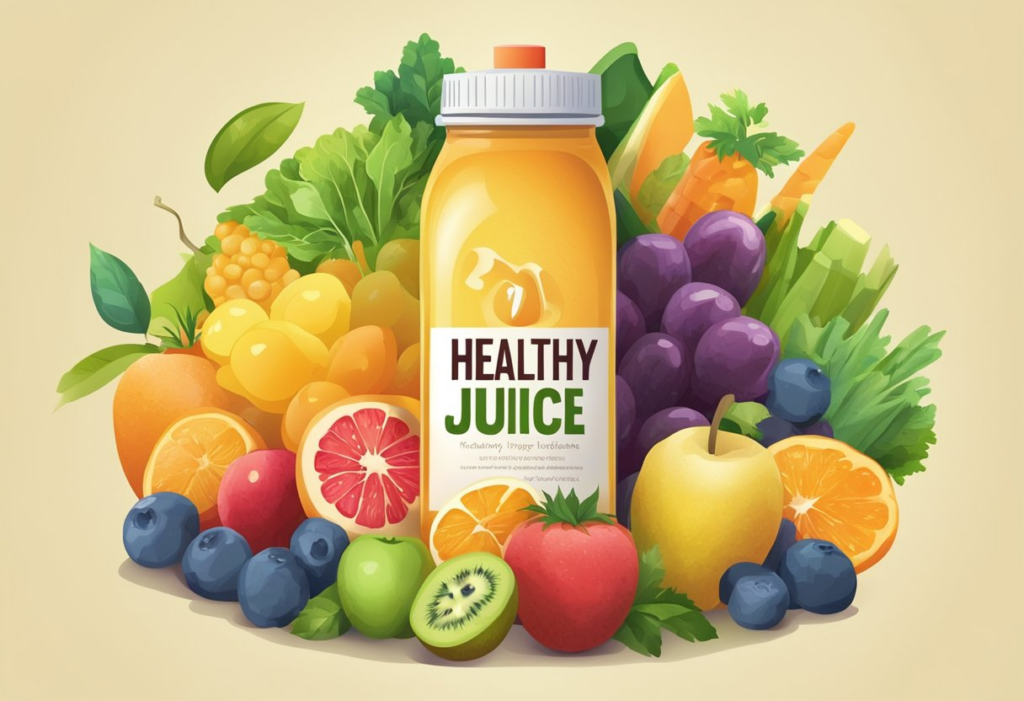Diet & Nutrition
What Is Health Washing
Health washing is a concept that has been increasingly popular in recent years, particularly in the food business. It refers to the practice of claiming a product is healthy or natural when it is not. This can be confusing for customers attempting to make healthier choices, leading to uncertainty about what is truly healthy.
Health washing can take numerous forms, including the use of buzzwords such as “organic” or “natural” on packaging or in advertising. It can also occur through the use of deceptive health claims, such as claiming a product is low in fat when it is actually rich in sugar. Health washing is not confined to the food business; it also occurs in the cosmetics and personal care industries.
As consumers, we must be mindful of health washing and carefully study labels and ingredient lists. We can encourage true health and wellbeing by educating ourselves on what is actually beneficial and recognizing the marketing strategies utilized by companies.

Understanding Health Washing
Definition and Origin
Health washing is a marketing strategy that involves utilizing false labeling and packaging to make a product appear healthier than it is. This strategy is frequently utilized by food and beverage firms to attract health-conscious customers. The term “health washing” was created in the early 1990s by food industry opponents worried about firms’ false health claims.
Health washing is a common practice that prevents consumers from making educated purchasing decisions. Companies that use phrases like “all natural,” “organic,” or “low fat” can give the idea that their products are healthier than they are. This can cause customers to assume they are making healthy decisions when they are not.
Prevalence in Marketing
Health washing is a common technique in the food and beverage industry. According to a University of Sydney study, more than half of packaged foods offered in Australia’s supermarkets are “ultra-processed” and frequently marketed as healthy. This is a big concern for public health because these goods are frequently heavy in sugar, salt, and harmful fats.
Healthwashing is also common in the beauty and personal care industries. Many corporations use words like “natural,” “organic,” and “chemical-free” to make their products appear safer and healthier. However, these phrases are frequently meaningless and do not imply that a product is genuinely safe or healthy.
To avoid health washing, thoroughly read labels and look beyond marketing promises. Look for certified items from reliable organizations like the USDA or the Non-GMO Project. Remember, just because a product is marketed as healthy does not imply it is.
Identifying Health Washing
As customers, we are continually assaulted with marketing messages that portray items as healthy or nutritious. However, not all of these claims are accurate, and some businesses participate in a process known as health washing. Health washing is a marketing strategy employed by businesses to make their products appear healthier than they are. In this section, we’ll talk about how to spot health-washing and the common strategies employed by businesses.
Common Tactics
Companies commonly utilize false packaging to health-wash their products. For example, a product’s packaging may feature photographs of fresh fruits and vegetables, despite the fact that the product contains only a minimal amount of those elements. Another typical strategy is to include buzzwords like “natural” or “organic” on packaging, even if the product does not match the requirements for these designations.
Companies also make inflated health claims. A product may claim to be “heart-healthy” or “low-fat,” even if it includes a lot of sugar or salt. These statements might be misleading, prompting customers to make unwise choices.

Labeling and Language
Companies may also utilize labeling and wording to promote their products’ health benefits. For example, a product may be branded “low-calorie,” yet the serving size is so small that it is unsuitable for the majority of individuals. Similarly, a product may be branded as “sugar-free,” but it may contain artificial sweeteners that are damaging to the body.
Companies also utilize terminology to health-wash their products, such as “all-natural” or “free-range.” While these phrases may seem tempting, the FDA does not control them, and businesses can use them even if their products do not meet the requirements for these labels.
Regulatory Aspects
Regulations have an important role in preventing health washing. However, firms may still discover ways to get around these rules. For example, the FDA restricts the use of health claims on food packaging, yet some corporations make deceptive claims that are not controlled by the agency.
In conclusion, health washing is a popular marketing strategy employed by businesses to make their products appear healthier than they are. Consumers should be aware of these methods and carefully check food labels. Understanding the common strategies employed by businesses allows us to make educated decisions and avoid falling for health-washing.
Implications of Health Washing
Consumer Perception
Health washing can have major consequences for customer perception. Misleading health claims can persuade consumers to assume that a product is healthier than it is, causing them to make unwise purchasing decisions. This can result in a loss of consumer trust in the industry as a whole.
Public Health Impact
Health washing can have a tremendous impact on public health. Misleading health claims can influence customers’ food choices, contributing to the development of chronic diseases like obesity, diabetes, and heart disease. This can have a detrimental impact on public health and lead to higher healthcare expenses.
Ethical Considerations
Health washing raises ethical problems about firms’ responsibilities to offer accurate and genuine information to customers. Companies are responsible for ensuring the safety of their products and that any health claims are substantiated by scientific data. Misleading health claims can be interpreted as a violation of this responsibility, harming the industry’s reputation as a whole.
To address the harmful consequences of health washing, companies must be upfront about their products and provide precise and true information to consumers. This can serve to increase customer trust and lead to better public health results. Furthermore, regulatory authorities such as the FDA play a critical role in holding firms accountable for any false health claims they make.

Combatting Health Washing
At its foundation, health washing is the practice of fooling consumers into believing that a product is healthier than it actually is. As consumers become more aware of the issue, we must take steps to combat health washing. Here are a few ways we can accomplish that:
Educating Consumers
Consumer education is one of the most effective approaches to counteract health-related misinformation. By giving consumers with the knowledge they need to make informed purchasing decisions, we may assist them avoid falling prey to health-washing.
This education can take numerous forms, including nutrition labels and public awareness initiatives. For example, we may provide consumers with clear and concise nutritional information about the items they purchase, allowing them to make more informed food choices.
Role of Regulations
Regulations can also help combat health-washing. Regulators can help corporations avoid deceiving consumers by establishing clear guidelines for what can and cannot be said on product packaging and in advertising.
For example, rules may require that products meet specific nutritional standards in order to be marketed as “healthy” or “natural.” They can also mandate that claims on product packaging and in advertisements be supported by scientific evidence.
Corporate Responsibility
Finally, corporations are responsible for being clear and honest with their customers. Companies may develop consumer trust and avoid unwanted publicity by being open about the nutritional content of their products and avoiding false promises.
This obligation goes beyond the things themselves. Companies should be open about their sourcing and production procedures, as well as their dedication to sustainability and ethical business practices.
To summarize, combating health washing requires a holistic approach that includes education, regulation, and corporate responsibility. By collaborating, we can assist guarantee that customers have access to accurate and reliable information about the products they purchase, and that firms are held accountable for their claims and actions.
Conclusion
The realization that health washing involves the deceptive packaging of products, making them appear healthier than they truly are, has become a pivotal point in my consumer consciousness. Recognizing the strategies employed by brands to capitalize on health trends and manipulate perceptions underscores the importance of being a discerning consumer.
The impact of health washing extends beyond mere packaging; it permeates labels, advertising, and even the narratives crafted around certain products. This revelation prompts a commitment to delving deeper into ingredient lists, understanding nutritional information, and questioning the authenticity of health claims. The goal is not just to be a consumer but an informed advocate for my own well-being.
In scrutinizing health washing, the connection between transparency, authenticity, and genuine health emerges as a guiding principle. A resolve to seek products and information that align with my health goals becomes a cornerstone of my consumer journey. This newfound awareness empowers me to make choices that resonate with a holistic understanding of well-being, transcending the allure of superficial health narratives.
The importance of fostering a critical mindset and questioning prevailing health narratives is not just a personal endeavor but a societal shift towards creating a culture of transparency and authenticity. By sharing the knowledge gained about health washing, I contribute to a collective awakening, fostering a community that values truth in health representation.


